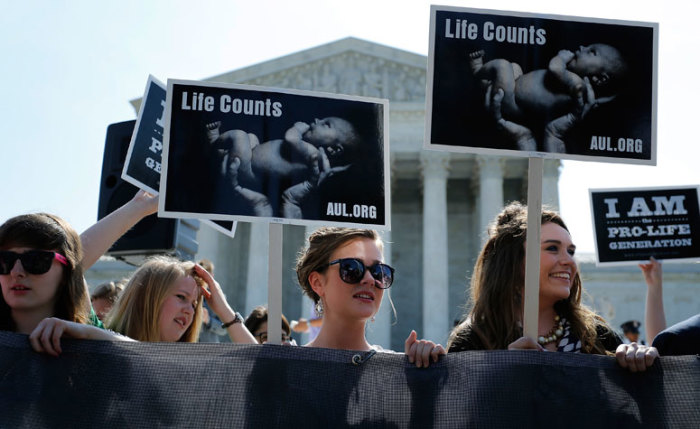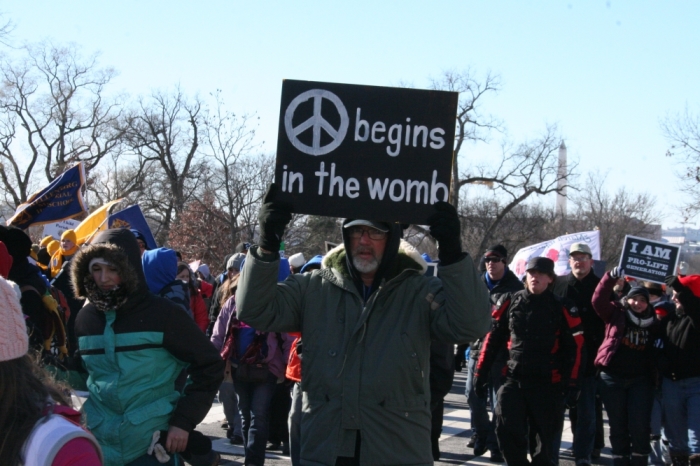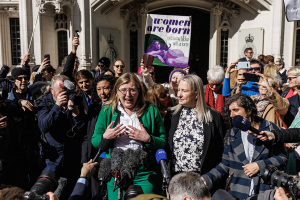Rasmussen Poll: Pro-Life Voters at 'All-Time High'
A recently released poll by Rasmussen Reports found that among voters in the United States, those who consider themselves pro-life are "at an all-time high."

Among 1,000 people surveyed last week, the report released Sunday found that 44 percent of likely voters identified themselves as "pro-life," versus 48 percent who self-identified as "pro-choice."
To contrast, in 2012, Rasmussen found 38 percent of voters identifying as pro-life, and in 2013 it was 43 percent.
"When it comes to the issue of abortion, the number of voters who consider themselves pro-life is at an all-time high," according to a press release on the findings.
Jim Sedlak, vice president for the American Life League, told The Christian Post that the Rasmussen report "is a snapshot in time of how people view abortion."
"This particular poll confirms a growing trend in the U.S. of people coming to understand the value of each human being's life from creation to death," said Sedlak.
"The poll is probably as valid as any. The poll should be used more toward seeing a trend rather than putting a lot of credence in particular numbers from a single poll," he added.
Carol Tobias, president of the National Right to Life Committee, told CP that she believes it complements other polls on the issue.
"We've found through the most recent Gallup Poll that a substantial majority, 58 percent, believes abortion should be legal in only a few circumstances (37 percent) or illegal in all circumstances (21 percent)," said Tobias.
"The pro-life movement is growing for a number of reasons," she continued. "Protecting unborn children is a compelling civil rights movement that attracts a large variety of people, regardless of age, gender, faith or political philosophy."
Among the social issues, the abortion debate is often cited by commentators as the one moral issue that social conservatives appear to be winning.
Over the past couple of years, state legislatures have enacted laws aimed at increasing the health and safety standards of abortion clinics. Instead of meeting the basic safety standards of ambulatory care centers, such as purchasing sterilization equipment and widening doorways for emergency transfers, some abortion clinic owners have opted to close.
And in late June, the Supreme Court ruled unanimously that Massachusetts' abortion clinic buffer zone law, which restricted pro-life protests at the facilities, was unconstitutional.
"We have gone to great lengths to develop campaigns that stress the spiritual nature of the effort and the fact that all human beings deserve to be respected and protected precisely because all human beings are created by God in His image," said Sedlak of American Life League to CP.
"The truth of this approach is resonating with people everywhere, and more and more are embracing the sanctity of every human being's life."
Rasmussen's findings come as state level debate over abortion regulations continue.
Last month, Louisiana's Republican Gov. Bobby Jindal signed two pro-life bills into law. HB 305 prohibits Planned Parenthood from offering their services to children who attend public and charter schools; and HB 388, which requires abortionists to obtain hospital admitting privileges within 30 miles of the clinics in which they practice, as well as a 24-hour waiting period for medical (abortion pill) and surgical abortions.






























